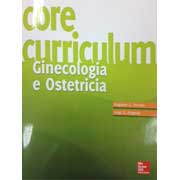311 - Gestational risks of egg donation
311 - Gestational risks of egg donation
F. M. Fusi,1 R. Secomandi,1 C. Bosisio,1 L. Frigerio2; 1USSD Centro PMA, Ospedale Papa Giovanni XXIII, Bergamo, Italy, 2Dept of Ob/Gyn, Ospedale Papa Giovanni XXIII, Bergamo, Italy
Abstract: Objective: Pregnancies in older women are increasing. These women often have comorbidities. These pregnancies, spontaneous, after IVF or egg donation are at high risk of complications, as high blood pressure, preeclampsia, low birth weight and cesarean section delivery.
The aim of this study is to assess the obstetrics and neonatal complications in egg donation pregnancies and compare them with IVF pregnancies in patients with advanced maernal age and with spontaneus pregnancies in patients with advanced maternal age. Design: Observational study using anonymized data on deliveries in our hospital from January 2014to March 2015. We collected data on 27 egg donation pregnancies and we compared them with a second group of 24 IVF omologus pregnancies (maternal age at delivery >38 years) and a third group of 42 spontaneus pregnancies (maternal age >42 years) Materials and Methods: We compared obstetric complicantions (high blood pressure,pre-eclampsia, etc⋯), neonatal complication (preterm deliveries, IUGR)and way of delivery, using all the medical records available.
Results: The mean age of the women was the same in the three selected groups. There was a significantly higher risk of adverse obstetric outcomes among women with egg donation pregnancies.
These pregnancies are at high risk for twins (25% vs 8% in omologus IVF pregnancies vs 0% in spontaneus pregnancies); cesarean section (72% vs 40% in omologus IVF vs 33.3% in spontaneus pregnancies); high blood pressure and preeclampsia (22% vs 8,33% in omologus IVF pregnancies vs 11,9% in spontaneus pregnancies); preterm deliveries <36weeks (32% vs 8% vs 17% in spontaneus pregnancies).
Conclusions: Patients who conceived by donor oocyte IVF are at high risks for obstetrics and neonatal complications, expecially for high blood pressure and preeclampsia compared to patients who underwent autologous IVF or patients with spontaneus pregnancies. Egg donation group of patients are exposed at high risks of twin pregnancies, preterm labour, cesarean section. No increased risk in fetal malformation or small for gestational age neonates has been evaluated. These results suggest that there is an adjunctive risk to that related to age in egg donation pregnancies. New strathegies to allow pregnancies in older ages have to be studied, such as the promotion of social freezing.
